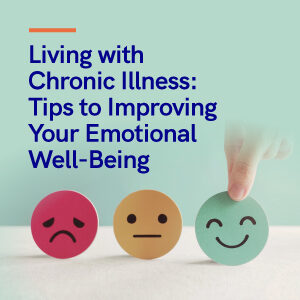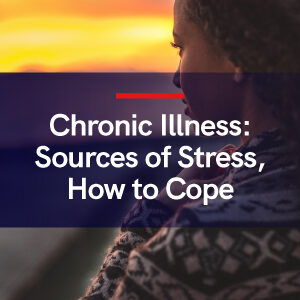I recently took an international flight and reflected on how traveling with multiple sclerosis (MS) used to be such a challenge. I realized that travel is so easy for me now because of the systems and routines I put in place to make traveling with MS easier.
Shortly after I was diagnosed with MS at age 12, I started sharing my story for audiences across the US; this meant a ton of travel. Traveling is often a hassle and disorienting, especially if you cross time-zones. It can be even tougher with chronic illness, which is why I want to share tips that allow me to travel frequently while maintaining my health.
Having systems in place ensures that travel causes the least interruption in your routine and health practices. Maintaining consistency is so important to help the body stay balanced and to keep your inner world at peace. We know the mind-state directly impacts symptoms so you want to plan travel in a way that nurtures your highest self and inner calm. Simple steps can allow you to maintain your routine and environment even when traveling frequently.
Each person’s needs are different so use the tips for travel below as a general guide and tweak to make the fit for you.
- Extra Medication
It’s a good idea to have an extra month of medication at all times. Keeping this stocked allows you to be prepared for any scenario such as a sudden injury with your travel buddy, needing to extend a stay, or say, a pandemic that restricts travel. You can start to stock medication by getting an extra few days or week at a time and just setting it aside. Four weeks of extra meds is a good rule. This of course also applies to supplements. While we live in a world of speedy deliveries, we saw at the beginning of the pandemic that nothing is certain. If there are supplements that help you maintain wellness, don’t risk missing them for a week. Keep extra on hand!
- Comfort First
There is a mechanism in the body called homeostasis. Homeostasis is a self regulating process that the body has to maintain equilibrium. During travel, the body works even harder to maintain homeostasis. I suggest aiding this process by keeping yourself as comfortable as possible. For example, my feet tend to get extremely cold on a plane so I have a plane packing cube (see below) in my carry-on with fuzzy socks. My body doesn’t have to work as hard to adjust. As soon as I sit down, I slip off my shoes and put on cozy socks. I also bring my own eye-mask and ear plugs to ensure complete comfort. For you, this might mean having your own blanket and pillow, especially if it’s a road trip. Rather than dozing off in an uncomfortable position 2 hours into the drive, create an environment that will be conducive to better sleep.
- Scheduling
Prioritize arrival time when scheduling your travel. It took me a while to learn this tip because as a teenager, I booked flights based on cost and the least amount of stops. I learned that it’s worth the extra cost to land at a time that will serve your health. For some people, that means arriving at your destination in the evening to get settled in, go to bed, and have a fresh start the next morning. For others, it’s landing in the morning. I choose arrival times that will ensure I stay as close to my regular routine as possible both at home the day of my departure and at the destination when I arrive. It won’t be perfect so practice a lot of compassion. Be gentle with yourself rather than push if your body needs extra rest. But also set yourself up for success. If an 8am flight means you won’t have time before departure or after arrival for your morning meditation practice, then schedule an afternoon flight (I personally like to meditate during my flight). Again It’s worth the extra cost, even if it means an extra night in a hotel, if it means maintaining health and avoiding a flare.
Another important scheduling factor is taking longer trips with lighter itineraries. Many people try to pack in as many activities as possible while traveling. While we tend to fit as much in as possible, plan a longer trip so that you can do things in a calm way. At home, you wouldn’t plan five different outings in one day, so why would you do it just because you’re in a different place? As a teenager, my parents really helped me with this. When planning a family vacation, they were mindful of my energy since I was facing a lot of fatigue at the time. They planned a few primary things to do in a week and left the rest of the time open-ended. I could nap or we could just go for a walk and explore. And, if on a particular day I woke up feeling really energized, we could look into something exciting to do that day. It was a great bonus rather than a feeling of disappointment if we had over-scheduled and had to cancel. And if you are reading this thinking “well I can’t take an extra week of vacation, what about work?” A decade from now you won’t be telling the story of how you got the bonus because of your consistent attendance. But you will be telling the story of the last day of the trip when you had plenty of energy and went to go swim with dolphins or because you could take your time, pulled over when you noticed the buffalo rather than kept rushing to the next activity or to catch your flight. (Yes, both I experienced!)
- Stock Your Destination in Advance
Since everything is about having a seamless transition, then the foods and tools that allow you to be at your best should be available to you no matter where you are (ok maybe not in the middle of the jungle but that’s for a different post). When we are away from home, it’s easy to fall into unhealthy habits like snacks that drain our energy. I do my best to order my “go-tos” ahead of time to be ready for me at my destination. For example, when I’m low on energy, one of my “go-tos” is almonds, so I’ll order some from Amazon ahead of time. Another thing that sustains me when traveling is bulletproof coffee. It’s so easy when on a trip to have a ton coffee and after 4 cups of caffeine, my body just isn’t in top form. Since I know Bulletproof serves me during travel, I buy their single serving “on-the-go” option and have it delivered the day I arrive. Yes this takes a little thought ahead of time but even just having one thing at your destination that will support a healthy habit can make a world of difference. Even if you choose to indulge the rest of the vacation (which I do too!), that one thing can help your body maintain health. If I don’t order in advance, then my first stop is always a grocery store.
- Pack Smart
Think ahead to the type of space you will have once you leave home. If at home, you walk to the kitchen in the morning and take out the tub of medications and supplements, you want to re-create a similar experience while traveling so that you can keep your routine. I recommend packing cubes so that you can combine items according to how you will set them up in the next destination. For example, all of my supplements go into one packing cube. This particular cube stays in my backpack or on whichever bag stays with me the whole time. When I arrive at a destination and unpack, it’s one of the first things that I take out and I place it next to my bed. As a result, I’m less likely to skip anything while I’m away. I wake up, grab a sip of water, then immediately see my supplements and on routine, take what I need to. For you, it might be putting the supplements in the kitchen or medicine cabinet that will make the habit feel the most seamless. But I’m not going through my purse for one supplement, my backpack for another, and then wondering where the Quercetin is hiding. It’s all in one place.
- Water
Human bodies are over 70% water. Most Americans are not drinking enough water daily. Water is even more important for the body during travel. Water helps cells renew, helps the body flush toxins, and aids in brain function which we need more of when adapting to new environments. When traveling, it’s common to actually reduce water intake. It’s essential to maintain healthy water intake and even better to increase intake while traveling. The body has immense natural capacity to support you during transitions but it needs some basic building blocks to do so. Water is one of them. By drinking more water before and during travel, you’re giving your body more power to support you while traveling and keep you healthy and energized. Having a bottle with a straw makes this easier. Before I leave the house I fill mine just a little so that I finish it before going through security at the airport. Then once I’m through security I refill it before boarding. This small practice which I started years ago has completely transformed my travel experience.
- Grounding
Our earth has sustained life for thousands of years. The oldest tree found on earth is in California and is dated as over 4800 years old! That isn’t random. The earth that nourishes trees has very powerful attributes. Scientists have conducted studies to understand how earthing or grounding (being barefoot on dirt, grass, or sand) can impact human beings. Research shows that earthing may reduce inflammation, pain, toxins and much more. I started a practice a couple years ago when crossing time-zones that has made it easier to immediately get on the new schedule. I get barefoot on the earth (not concrete or asphalt!) for at least 20 minutes in the early morning hours on the first and second day at my destination. The frequency of the earth teaches the body where it is and helps sync the body’s rhythm to your new location. Again this is only important if you are changing time zones. (There are homeopathic remedies that I have found very effective for preventing jet-lag. You can research this online or call Santa Monica Homeopathic Pharmacy for guidance.)
There are many ways you can ease travel to support your wellness. The more systems you have in place and the more you create a seamless experience between home-life and away-life, the less illness will get in the way of your ability to travel or your activities once you arrive. On day one of my current trip, I planned accordingly to get my body right on schedule after an overseas flight. Everyone marveled at how I was managing so well. Perfectly healthy people were sharing their horror stories of how hard it was for them to adjust. Years of perfecting travel so that I could do so without leading to exacerbations has allowed me to enjoy travel in an easier way than even the average healthy person. Illness forced me to create great systems that I continue to benefit from. I hope these traveling tips will help you have a smooth experience!


